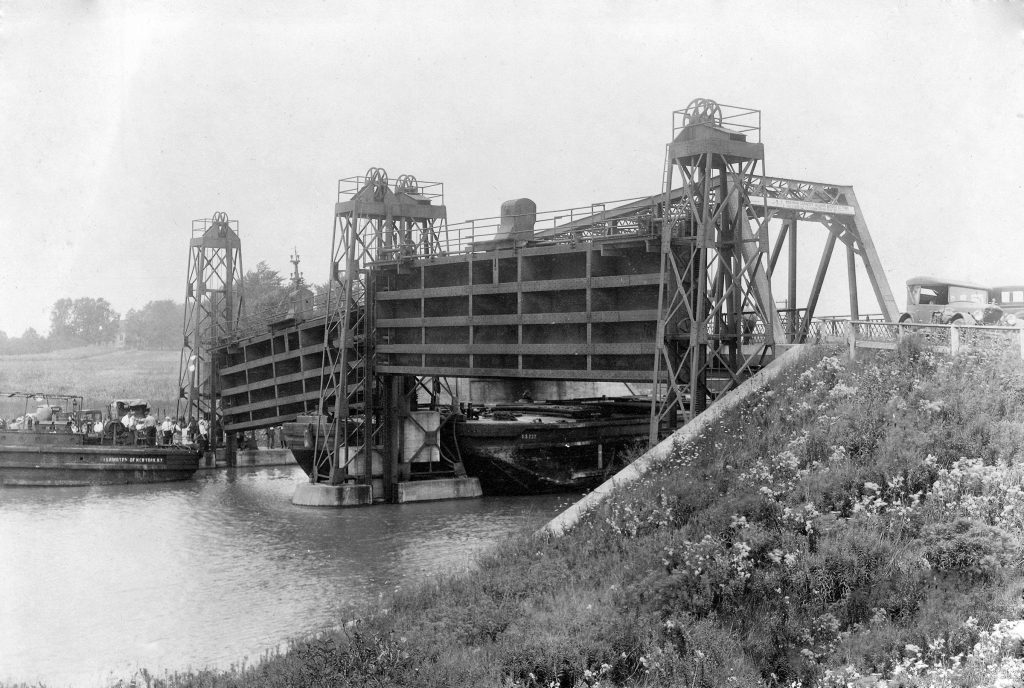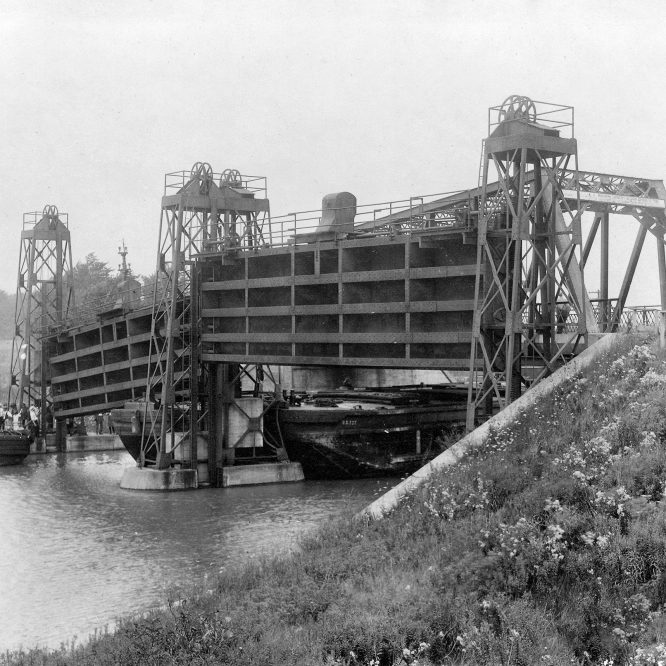Volume 3, Issue 28
Taken on August 19, 1925 by the New York Department of State Engineers, Western Division, this image shows Guard Gate 15 located at Bates Road in Medina. This gate was referred to locally as “Hastings Guard Gate” and provided workers with the ability to isolate sections of the Erie Canal during wall breaks, accidents, and high water levels. Orleans County has three guard gates; Gate 15 at Medina, Gate 14 at Albion, and Gate 13 at Holley.
This photograph raises an interesting question; what happens when the guard gate is involved in an accident? In August of 1925, a fleet of six barges from the “Green Fleet” under the charge of Captain Hickey were travelling westward. The vessels were pulled behind a tugboat, two abreast, when the southern barge rammed the center pier of the guard gate. The force of the impact jarred the gate loose from its hinges, dropping it onto the deck of the northern barge. A crowd of onlookers and workers gathered along the northern towpath of the canal, assembling near the tugboat.
The “Green Fleet” was a flotilla of approximately 72 barges built by the War Department during World War One for the emergency transportation of supplies. In 1921, the New York Canal and Great Lakes Corporation purchased the vessels for transporting goods by way of the Erie Canal. The name “Green Fleet” was derived from the green color of the barges. According to local papers, this was the second time that the gate was involved in a collision since it was widened starting in 1914. The Maryland Dredging & Contracting Company of Baltimore was hired to complete work on Contract No. 65, which involved widening the sill of the Hastings Guard Gate.
This wasn’t the last accident experienced at the Bates Road Bridge. Nearly four years later, on August 7, 1929, Barge No. 40 of the Grain Transit Corporation Line was travelling eastbound when it struck the center pier. Carrying 30,400 bushels of wheat, the barge sank in five feet of water in a relatively short period of time. A small portion of the wheat was destroyed by water, but thankfully the accident did not block traffic


